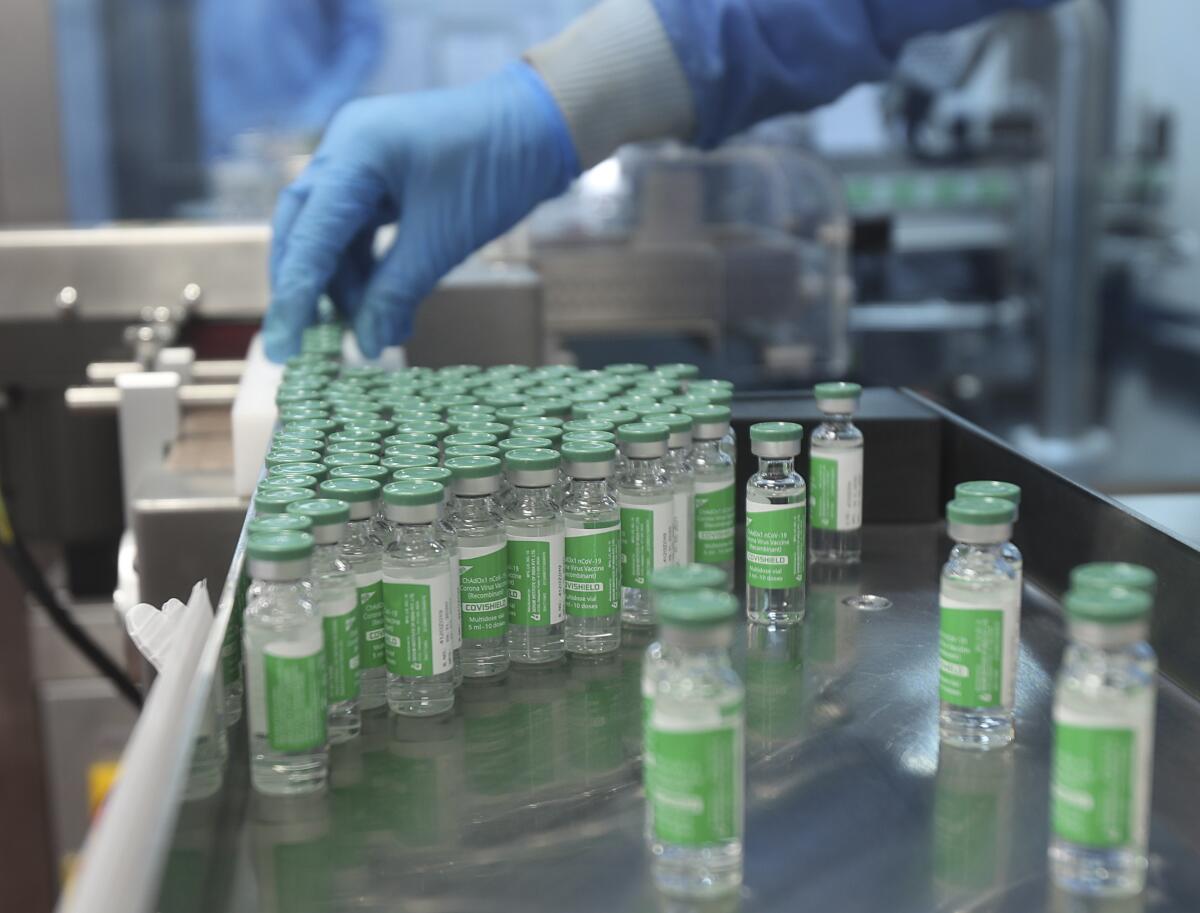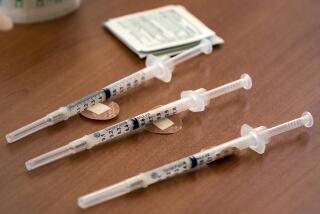Changing the incentives for global vaccine production

- Share via
The COVID-19 pandemic continues to reveal underlying infrastructural inequalities around the world. While the United States rapidly rolls out vaccines even to children, countries such as India suffer devastating numbers of death each day. India recently reported more than 340,000 daily coronavirus cases with no end to its crisis in sight.
In response to intensifying political pressure to reduce the suffering in lower-income nations, the Biden administration now supports a waiver of intellectual property rights for COVID-19 vaccines for as long as the pandemic lasts. This development has elicited two responses. Some commentators regard the administration’s new position as a paradigm shift that will affect IP protection. But others predict that it will have no impact on vaccine access.
Both positions fail to capture the bigger picture. First, IP protection will continue, including for COVID-19 vaccines in wealthy countries where pharmaceutical firms reap enormous profits. Second, the threat of a waiver can help shift patent-holding companies’ incentives and induce mass production of COVID-19 vaccines for low- and middle-income countries.
The effort to achieve global vaccination faces huge incentive problems. Private pharmaceutical companies responsible to shareholders seek to maximize profits. The longer the pandemic lasts, the more likely it is that new coronavirus variants will require adjusting and distributing new vaccines, and thus the more these firms will profit.
Meanwhile, the governments of richer nations face conflicting short- and long-term incentives. In the short term, domestic politics encourage vaccine nationalism, leading governments to contract for an exclusive vaccine supply. The U.S. government, for example, has imposed a de facto ban on vaccine exports through its agreements with private companies.
But because viruses know no borders, these governments face the longer-term threat of new imported variants against which current vaccines may be ineffective. Such pathogens would pose a clear risk to citizens’ lives and health and to countries’ economic well-being.
At the same time, there is a growing strategic rivalry between the U.S. and China for command of advanced biotech production. The Pharmaceutical Research and Manufacturers of America, a trade group, plays off this fear to demand control of trade secrets. And trade secrets, not patent rights to COVID-19 vaccines, are the major obstacle to ensuring wider access to COVID-19 vaccines (especially mRNA vaccines).
Technically, these trade secrets are not an intellectual property right but are instead protected by “unfair competition” law. The question is how to compel pharmaceutical companies to provide their trade secrets to other manufacturers to produce the vaccines, subject to a nondisclosure agreement and compensation on a cost or cost-plus basis. The threat of an IP waiver could encourage and compel pharmaceutical companies to enter into such arrangements.
Wealthy countries could further bolster these incentives by pooling resources, including through the COVID-19 Vaccine Global Access facility, known as COVAX. After all, they have an enormous advantage over poorer economies that are grappling with endemic poverty and unequal negotiating power.
To reach a deal, a critical mass of rich countries — as well as other vaccine producers, including China and Russia — should agree not to benefit from any waiver, including from any compensation arrangement. In parallel, a number of developing countries could issue, or threaten to issue, compulsory licenses — with the support of the U.S., the European Union and other countries — to enhance their negotiating leverage.
This is not a revolutionary change, because the protection of IP rights has always been subject to public health requirements. But, because the central difficulty lies with trade secrets and not with patents, the World Trade Organization agreement on trade-related intellectual property rights is not the main problem. Even without it, pharmaceutical companies still would have no incentive to release their trade secrets. Paradoxically, that agreement could now offer a potential benefit by enabling countries to wield the waiver threat to encourage companies to enter into the necessary contracts.
More than 3.4 million people have now died from COVID-19, and millions more lives could be lost as variants of the virus threaten to prolong the pandemic. Thoughtful, immediate action on vaccines is needed as a matter of moral and practical urgency. For the Biden administration, that means taking steps now to shift the pharmaceutical industry’s incentives.
Michele Goodwin is a law professor and director of the Center for Biotechnology and Global Health Policy at UC Irvine. Gregory Shaffer is a professor of law and political science at UC Irvine and author of the forthcoming book “Emerging Powers and the World Trading System: The Past and Future of International Economic Law.”
More to Read
A cure for the common opinion
Get thought-provoking perspectives with our weekly newsletter.
You may occasionally receive promotional content from the Los Angeles Times.









